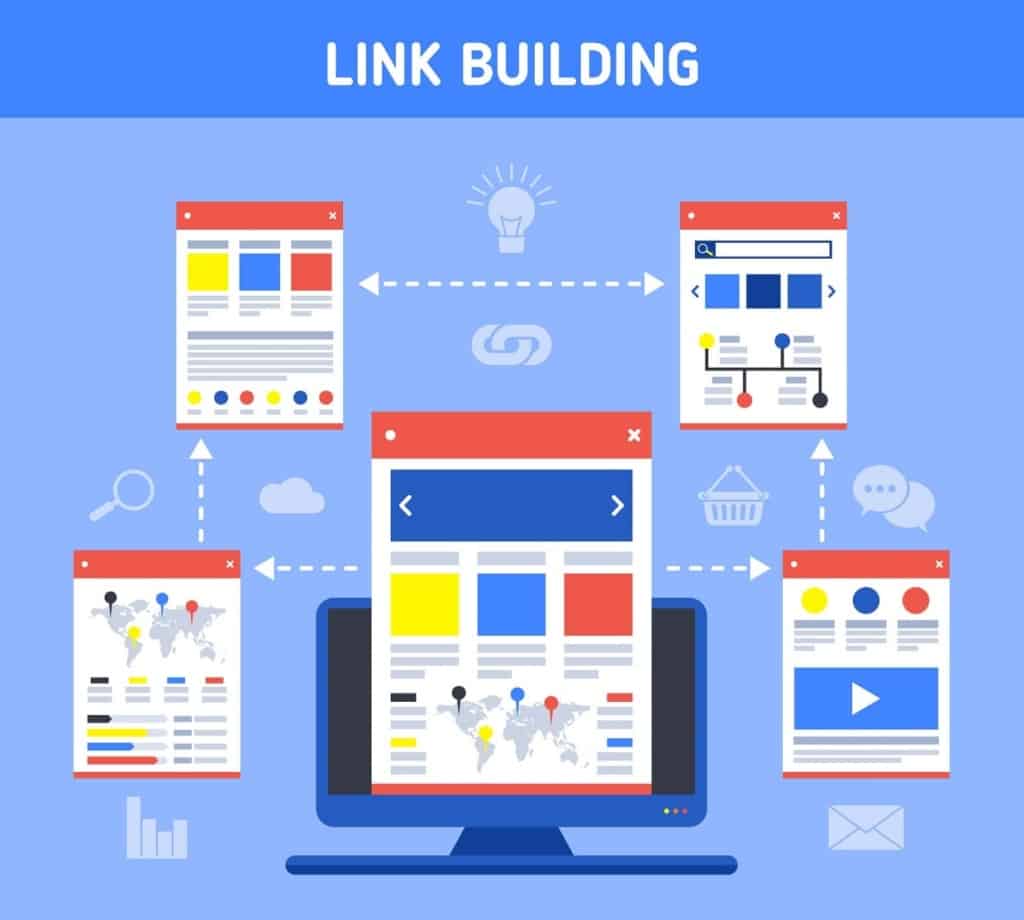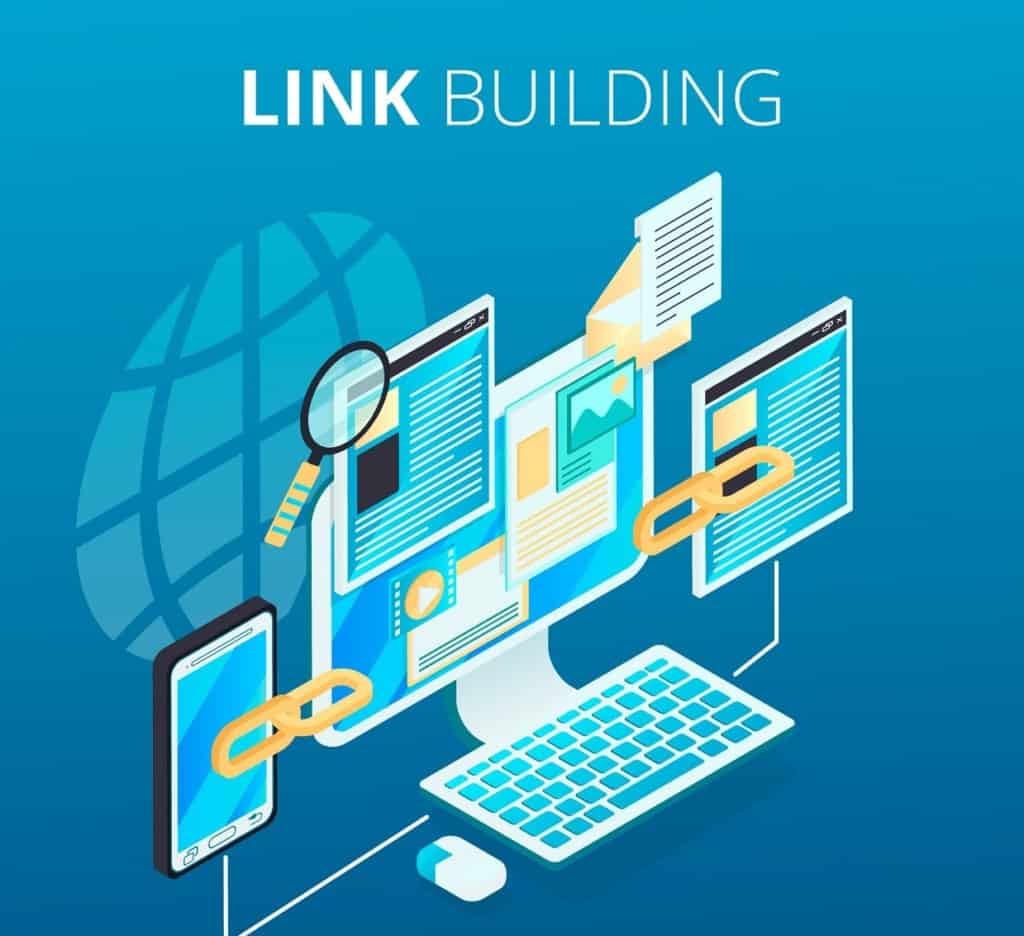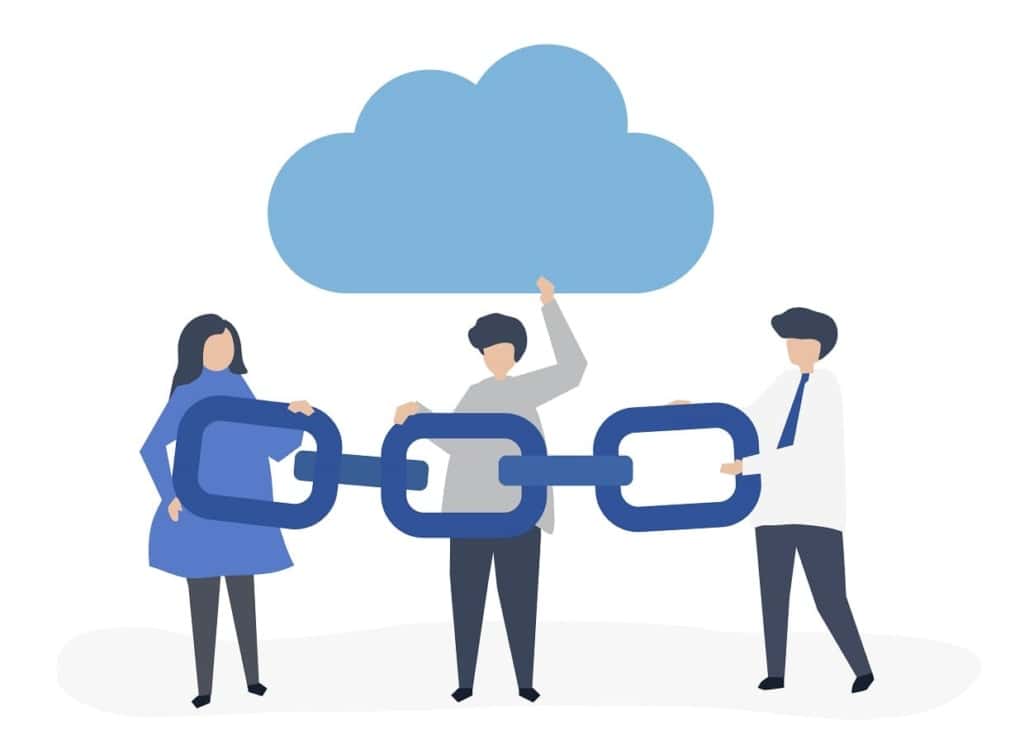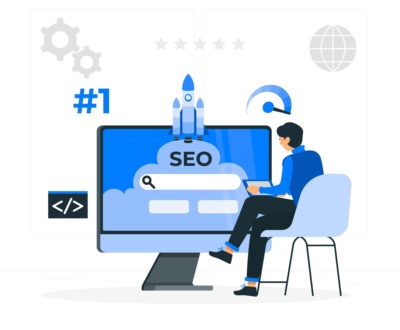If you’re navigating the world of digital marketing and SEO, you’ve likely come across the term “link building.” But what exactly is link building, and why is it so important for your website’s success? In this article, we’ll delve into the nuances of link building, explore its significance, discuss effective strategies, and provide insights into building high-quality links through content marketing.

Contents
- 1 Introduction
- 2 What is Link Building?
- 3 What is the importance of Link Building in SEO?
- 4 How to Build Links Effectively
- 5 What Makes a Link “Good”
- 6 1. Authority of a Page
- 7 2. Relevance
- 8 3. Placement of the Link
- 9 4. Anchor Text
- 10 5. No Follow vs. Follow Links
- 11
- 12 Links With Content Marketing
- 13 Leveraging Broken Link Building
- 14 Utilizing Link Building Tools
- 15 Unearthing Opportunities: Backlink Gap Analysis
- 16 Finding High-Quality Links
- 17 The Synergy of Links and Content Marketing
- 18 Link Building and Outreach
- 19 Overcoming Common Link Building Challenges
- 20 Link Building Ethics and Best Practices
- 21 Measuring Link Building Success
- 22 Google PageRank Algorithm: A Foundation of Link Building
- 23 1. Penguin Algorithm: A Guardian Against Unethical Link Building
- 24 2. Embracing PageRank and Penguin in Your Strategy
- 25 FAQs About Link Building
- 26 GrabRanking: Your Trusted Digital Marketing and SEO Agency
Introduction
In the dynamic landscape of SEO, link building acts as a pillar of success. It involves acquiring hyperlinks from external websites to your own, with the goal of enhancing your site’s authority, visibility, and search engine rankings. It’s like receiving votes of confidence from other reputable websites, indicating that your content is valuable and credible.
What is Link Building?
Link building isn’t merely about amassing a multitude of links. Instead, it’s a meticulous process of strategically obtaining links from trustworthy sources that are relevant to your niche. These links serve as pathways that connect users to your website, making it a vital aspect of your online presence.
What is the importance of Link Building in SEO?
Search engines, such as Google, view backlinks as endorsements of your website’s credibility. The more high-quality links you have, the more authoritative your website appears, leading to higher rankings in search results. Link building enhances your website’s visibility, drawing in organic traffic and establishing your digital footprint.

How to Build Links Effectively
Guest Posting
Guest posting involves creating and publishing content on external websites, usually within your niche. This not only provides exposure to a wider audience but also grants you the opportunity to include relevant backlinks to your site, contributing to your SEO efforts.
Broken Link Building
Broken link building is a unique strategy where you identify broken links on other websites and offer your content as a replacement. This not only aids the website owner in maintaining a seamless user experience but also allows you to secure a valuable backlink.
Skyscraper Technique
The skyscraper technique involves identifying popular content within your domain, creating something even better, and reaching out to websites linking to the original content, proposing they link to your improved version instead.
What Makes a Link “Good”
Quality triumphs over quantity when it comes to link building. A good link originates from a reputable source, is contextually relevant to your content, and uses descriptive anchor text. Such links are seen as valuable endorsements by search engines.
1. Authority of a Page
The authority of a page refers to its credibility and trustworthiness in the eyes of search engines. Pages with high authority are deemed reputable sources of information. When seeking backlinks, prioritize acquiring them from pages with authority, as these links have a more positive impact on your own website’s rankings.
2. Relevance
Relevance is the alignment between the content of the linking page and the content of your website. Search engines value backlinks that come from pages with content closely related to yours. A link from a relevant source indicates to search engines that your content is valuable within a particular context.
3. Placement of the Link
The placement of a backlink within the content matters. Links placed within the body of an article or content are generally considered more valuable than those placed in footers or sidebars. Contextual links within the main content are more likely to attract clicks and carry more weight in terms of SEO.
4. Anchor Text
Anchor text is the visible, clickable text of a hyperlink. It provides context about the content the link points to. Effective anchor text is descriptive and relevant, offering users and search engines insight into the linked page’s topic. Avoid generic or overly keyword-stuffed anchor text, as it can appear spammy.
5. No Follow vs. Follow Links
A “follow” link is one that search engines consider when calculating a website’s authority. It contributes to the linking page’s PageRank. In contrast, a “no follow” link includes an HTML attribute that instructs search engines not to pass authority from the linking page to the linked page. While “no follow” links don’t directly influence SEO rankings, they can still drive traffic and provide value.
Links With Content Marketing
One of the most effective ways to build high-quality links is by integrating your link-building efforts with your content marketing strategy. Content marketing involves creating valuable, informative, and engaging content that resonates with your target audience. When your content provides value, it naturally attracts attention and encourages other websites to link to it.
Here are some key steps to effectively combine link building with content marketing:
Step 1: Identify Link-Worthy Topics
Start by researching topics that are relevant to your industry and resonate with your audience. These topics should be informative, engaging, and have the potential to solve problems or provide insights for your readers.
Step 2: Create Exceptional Content
Craft high-quality, comprehensive content that stands out from the competition. This could include in-depth articles, guides, infographics, videos, or any other form of content that delivers value to your audience.
Step 3: Outreach and Promotion
Once your content is ready, reach out to other websites, bloggers, and influencers in your industry. Inform them about your content and explain why it would be valuable to their audience. Personalized outreach messages are more likely to grab attention.
Step 4: Build Relationships
Building relationships is crucial in link building through content marketing. Engage with the websites and individuals you’ve reached out to. Interact with their content, share their work, and establish a genuine connection.
Step 5: Monitor and Analyze
Keep track of the links your content attracts. Use tools like Google Analytics to monitor the traffic that comes from these links. Analyze the effectiveness of your efforts and refine your strategy based on the results.
Leveraging Broken Link Building
Broken link building is a savvy approach to not only enhance your website’s SEO but also assist others in improving their user experience. This method involves identifying broken links on other websites and then suggesting your own relevant content as a replacement. It’s a win-win situation where you provide value to website owners while securing valuable backlinks for your site.

Step 1: Identify Relevant Targets
Begin by identifying websites within your niche that have broken links. You can use tools like Broken Link Checkers or browser extensions to streamline this process.
Step 2: Create Valuable Content
Craft high-quality content that closely matches the topic of the broken link. Your content should not only provide valuable information but also seamlessly replace what was originally linked.
Step 3: Outreach and Proposition
Contact the website owner or administrator and notify them about the broken link you’ve identified. Politely suggest your content as a replacement, highlighting how it aligns with their website’s theme.
Step 4: Build Genuine Relationships
If the website owner decides to replace the broken link with your content, take this opportunity to establish a connection. Express gratitude and keep the lines of communication open for potential collaborations in the future.
Utilizing Link Building Tools
In the intricate realm of SEO, link building tools can be your allies. These tools offer insights, analysis, and data that streamline your link-building efforts. Here are a few noteworthy tools:
Ahrefs
Ahrefs provides comprehensive backlink analysis, competitor research, and keyword tracking. It helps you identify link-building opportunities and understand your website’s link profile.
Moz
Moz offers a range of tools, including link analysis, keyword research, and site audits. Its Domain Authority metric is commonly used to gauge a website’s authority.
SEMrush
SEMrush allows you to analyze backlinks, track keyword rankings, and research competitors. It provides valuable insights for refining your link-building strategy.
Unearthing Opportunities: Backlink Gap Analysis
Backlink gap analysis is a strategic approach to identify the backlinks that your competitors have but you don’t. By recognizing these gaps, you can work on securing similar backlinks for your website.
Step 1: Identify Competitors
Identify your main competitors in the online landscape. These are websites that are similar to yours and target similar keywords.
Step 2: Analyze Competitor Backlinks
Using tools like Ahrefs or SEMrush, analyze the backlink profiles of your competitors. Identify the sources of their backlinks and the types of content that attract links.
Step 3: Identify Gaps
Compare your website’s backlink profile with your competitors’. Identify the sources from which your competitors have acquired backlinks but you haven’t.
Step 4: Outreach and Acquisition
Once you’ve identified the backlink gaps, reach out to those sources and propose relevant content for potential backlinks. Emphasize how your content can provide value to their audience.
Finding High-Quality Links
Acquiring high-quality links requires a strategic approach. Here are a few techniques to help you find and secure such links:
Guest Posting and Contributor Ship
Guest posting on authoritative websites within your niche not only provides exposure but also allows you to include backlinks to your site. Becoming a contributor adds credibility to your brand.
Influencer Collaborations
Collaborating with influencers in your industry can lead to valuable backlinks. Influencers often have a loyal following, and their endorsement can enhance your website’s credibility.
Creating Linkable Assets
Craft content that stands out as a valuable resource. Infographics, in-depth guides, research papers, and unique studies are examples of linkable assets that naturally attract backlinks.
The Synergy of Links and Content Marketing
Content marketing and link building are two sides of the same coin. Your content serves as a magnet for backlinks when it provides value and resonates with your audience.
Crafting Linkable Content
When creating content, focus on providing unique insights, practical solutions, or entertaining narratives. Quality content naturally attracts shares and backlinks.
Outreach and Relationship Building
Promote your content by reaching out to industry websites, bloggers, and influencers. Building relationships enhances the likelihood of your content being shared and linked.
Social Media Amplification
Utilize your social media channels to share your content. When your followers find value in your content, they’re more likely to share it on their platforms, potentially leading to more backlinks.
Link Building and Outreach
Outreach is a crucial component of successful link building. Engage in effective outreach to maximize your link-building efforts.
Personalized Outreach Messages
Craft personalized outreach messages that clearly communicate why your content is valuable and relevant to the recipient’s audience.
Building Relationships
Don’t view outreach as a one-time transaction. Build relationships with webmasters, bloggers, and influencers for long-term collaborations.
Follow Up
If you don’t receive a response to your initial outreach, don’t hesitate to send follow-up messages. A polite follow-up can often lead to positive outcomes.
Overcoming Common Link Building Challenges
While link building offers numerous benefits, it comes with its own set of challenges. Here are some common challenges and how to overcome them:
Competition
With many websites vying for attention, it’s important to stand out. Create exceptional content that addresses specific needs and provides unique value.
Algorithm Changes
Search engine algorithms are constantly evolving. Stay updated with SEO trends and adapt your link-building strategies accordingly.
Quality Over Quantity
Focus on acquiring high-quality backlinks from authoritative sources. A few high-quality links can have a more significant impact than numerous low-quality ones.
Rejections
Not all outreach attempts will lead to positive responses. Don’t be discouraged by rejections. Instead, use feedback to refine your approach.
Link Building Ethics and Best Practices
Ethical link building is essential for maintaining credibility and long-term success.
Avoid Black-Hat Techniques
Avoid unethical practices such as buying links or engaging in link farms. These tactics can lead to penalties from search engines.
Transparency
Be transparent about your intentions when reaching out for link-building opportunities. Clearly communicate the value you offer to recipients.
Relevance
Ensure that the websites you approach for backlinks are relevant to your niche. Irrelevant backlinks can negatively impact your website’s SEO.
Diversification
Diversify your link profile by acquiring backlinks from a variety of sources. This prevents over-reliance on a single type of link.
Measuring Link Building Success
Effectively measuring the success of your link-building efforts requires tracking and analyzing relevant metrics.
Organic Traffic Growth
Monitor the increase in organic traffic to your website as a result of successful link-building campaigns.
Keyword Rankings
Track the improvement of your keyword rankings on search engine results pages (SERPs). Higher rankings often correlate with successful link building.
Backlink Count
Keep track of the number of acquired backlinks. While quantity isn’t the sole factor, an increase in quality backlinks is a positive sign.
Referral Traffic
Measure the amount of traffic your website receives from the backlinks you’ve acquired. Quality backlinks can lead to significant referral traffic.
Conversions
Analyze the impact of your link-building efforts on your conversion rates. Increased traffic from high-quality backlinks can lead to more conversions.

Google PageRank Algorithm: A Foundation of Link Building
In the realm of SEO and link building, the Google PageRank algorithm stands as a foundational concept. This algorithm was a groundbreaking innovation that revolutionized how search engines ranked websites. Although it’s no longer the sole determining factor, understanding its principles sheds light on the significance of link building.
The Basics of PageRank:
PageRank operates on the premise that not all links are equal. It assigns a numerical value to each webpage based on the quantity and quality of backlinks it receives. The idea is that if a page is linked to by many other pages, it must be important and valuable. The quality of those linking pages also contributes to the value assigned to a page.
Link Building’s Connection:
The PageRank algorithm underscores the importance of building authoritative and relevant backlinks. It encourages webmasters and content creators to focus on acquiring links from trustworthy sources rather than pursuing sheer quantity. Quality links from reputable websites have a more significant impact on a webpage’s PageRank, boosting its visibility in search results.
1. Penguin Algorithm: A Guardian Against Unethical Link Building
As the importance of link building grew, so did the incentive to manipulate search engine rankings through unethical practices. In response, Google introduced the Penguin algorithm in 2012 to curb these malpractices and reward websites that genuinely provided value to users.
The Purpose of Penguin:
The Penguin algorithm was designed to penalize websites engaging in black-hat link-building tactics, such as buying links, link farming, and keyword stuffing. These tactics not only compromised the quality of search results but also undermined the integrity of the online ecosystem.
Quality Over Quantity:
Penguin emphasized the importance of quality over quantity when it came to backlinks. It scrutinized the relevance and authority of linking websites, ensuring that websites with spammy or low-quality links would face penalties. This shift reinforced the notion that link building should be an organic process, driven by valuable content and genuine connections.
Ethical Link Building:
The introduction of the Penguin algorithm reinforced the significance of ethical link building. Websites were now compelled to focus on building relationships, producing high-quality content, and fostering natural link acquisition. By adhering to these principles, websites not only avoided penalties but also established themselves as trustworthy and credible sources in their respective industries.
2. Embracing PageRank and Penguin in Your Strategy
Understanding the principles behind the Google PageRank algorithm and the Penguin algorithm is crucial for effective link building. Incorporating these concepts into your strategy ensures that you’re not only enhancing your website’s authority but also adhering to ethical practices.
When crafting your link-building strategy, prioritize acquiring links from reputable sources, as advocated by the PageRank algorithm. Focus on creating valuable content that naturally attracts backlinks and fosters genuine connections. At the same time, remain vigilant against unethical practices, knowing that the Penguin algorithm is designed to reward those who play by the rules.
In the ever-evolving landscape of SEO, PageRank and Penguin serve as reminders that while algorithms may change, the core principles of link building remain constant: value, relevance, and authenticity.
FAQs About Link Building
What is link building in SEO and how it works?
Link building is the practice of acquiring hyperlinks from other websites to your own. These backlinks are like “votes of confidence” that signal to search engines the credibility and relevance of your content. Quality link building involves obtaining links from authoritative and relevant sources to improve your website’s search engine rankings.
What is link building vs backlinks?
Link building is the process of actively acquiring backlinks from other websites to your own. Backlinks, on the other hand, are the actual hyperlinks that point from one website to another. Link building encompasses the strategies and efforts used to obtain these valuable backlinks.
What are the benefits of link building?
Link building offers numerous benefits, including improved search engine rankings, increased organic traffic, enhanced website authority, and greater visibility in search results. Quality backlinks also introduce your content to new audiences and foster valuable connections within your industry.
What is the best link building strategy?
The best link building strategy combines various approaches, such as creating high-quality, shareable content, guest posting on reputable websites, leveraging broken link building, and fostering relationships within your niche. Ethical practices, relevance, and delivering value are key components of an effective strategy.
What are the factors in link building?
Several factors influence successful link building: the authority and relevance of linking websites, the quality and uniqueness of your content, natural anchor text, placement within content, and the balance between “no follow” and “follow” links. Considering these factors ensures ethical and impactful link-building efforts.
GrabRanking: Your Trusted Digital Marketing and SEO Agency
With over 12 years of experience in the digital marketing and SEO industry, GrabRanking is a reputable agency that excels at driving results. Our team of seasoned experts possesses the skills and expertise required to help businesses thrive in the ever-evolving online landscape.
At GrabRanking, we offer a comprehensive suite of digital marketing services tailored to meet the unique needs of our clients. From search engine optimization (SEO) and pay-per-click (PPC) advertising to social media marketing and content creation, we cover all aspects of online promotion. Our goal is to drive targeted traffic, increase brand visibility, and ultimately boost conversions.
About us and this blog
We are a digital marketing company with a focus on helping our customers achieve great results across several key areas.
Request a free quote
We offer professional SEO services that help websites increase their organic search score drastically in order to compete for the highest rankings even when it comes to highly competitive keywords.










